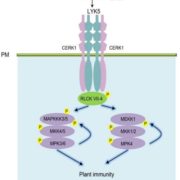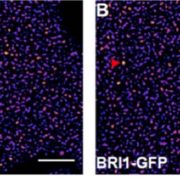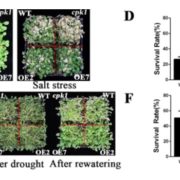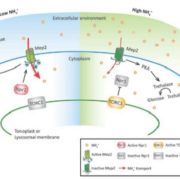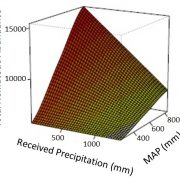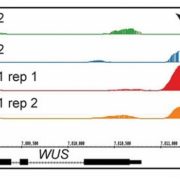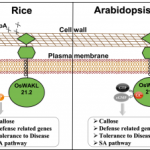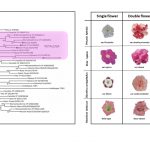Hydrogen mediates tolerance to cadmium-induced root toxicity (Plant Physiol.)
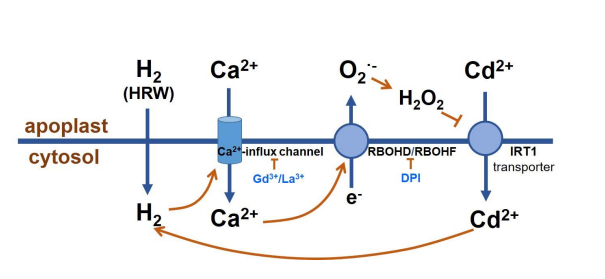 Heavy metals are a potential threat to human health, especially in areas with high industrial activity where the metals leach in the soil to contaminate underground water. These metals are a threat to plants too, resulting in stunted growth and their eventual death. Wu et al. carried out a mechanistic analysis of how plants use multiple signaling components to enhance tolerance to cadmium (Cd)-induced toxicity in roots. Application of Cd results in production of hydrogen (H2) gas in roots, which by hitherto unidentified protein(s), enable(s) inflow of calcium (Ca2+) ions. The Ca2+ then induces cytosolic influx of hydrogen peroxide (H2O2) through NADPH oxidases, resulting in the down-regulation of the gene encoding IRT1 transceptor, which acts as a conduit for Cd2+ influx. This study is significant since it establishes the likely role of H2 gas as a signaling agent in plants. (Summary by Pavithran Narayanan @pavi_narayanan). Plant Physiol. 10.1104/pp.20.00377
Heavy metals are a potential threat to human health, especially in areas with high industrial activity where the metals leach in the soil to contaminate underground water. These metals are a threat to plants too, resulting in stunted growth and their eventual death. Wu et al. carried out a mechanistic analysis of how plants use multiple signaling components to enhance tolerance to cadmium (Cd)-induced toxicity in roots. Application of Cd results in production of hydrogen (H2) gas in roots, which by hitherto unidentified protein(s), enable(s) inflow of calcium (Ca2+) ions. The Ca2+ then induces cytosolic influx of hydrogen peroxide (H2O2) through NADPH oxidases, resulting in the down-regulation of the gene encoding IRT1 transceptor, which acts as a conduit for Cd2+ influx. This study is significant since it establishes the likely role of H2 gas as a signaling agent in plants. (Summary by Pavithran Narayanan @pavi_narayanan). Plant Physiol. 10.1104/pp.20.00377


